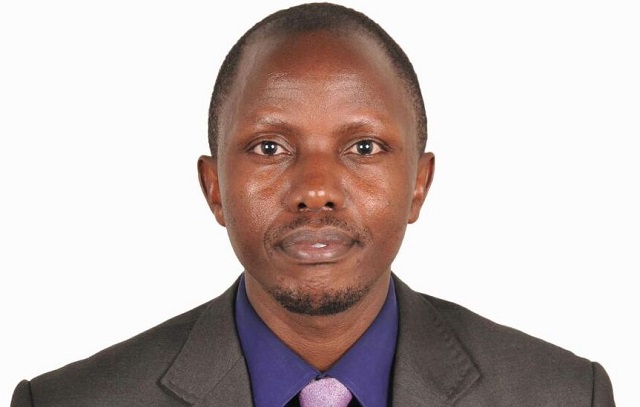
Kampala, Uganda | ISAAC KHISA | Joram Nyanzi is the managing director of Kenlloyd Logistics Uganda Ltd. He spoke to Isaac Khisa about the performance and prospects of the region’s logistics industry.
What is your management style as the managing director?
I am a strong believer in human resource in an organisation, and as such, I spend a lot of my effort and focus in ensuring that we attract, develop and retain the best talent.
What is your assessment of the performance of the logistics industry in Uganda and the East African region?
The past two years have not been good for the logistics industry due to a number of factors ranging from political instability in the neighbouring countries, elections in Kenya, breakdown of the rail operations and generally the slow growth in our economy. Many companies in the industry had invested a lot in anticipation of increased activities and projects in the region; however, this did not come to fruition rendering vital assets idle and reduced profitability. However, the tide is slowly changing though along with another trend of new global players entering the market in preparation for the production phase in the oil and gas sector.
What products do you offer as Kenlloyd Logistics Uganda Limited? Who are the target clients?
Kenlloyd Logistics Uganda Limited is a network partner of the German’s logistics global giant, DB Schenker, and being part of this global network enables us to provide a number of services including door to door services with air or sea, road and rail options, warehousing and distribution and customs clearance and consultancy. Our target clients are but not limited to project contractors, manufacturers, and companies involved in oil and gas.
The East African countries are currently investing in the Standard Gauge Railway. Does that worry your operations in the region?
SGR is another measure of facilitating trade in the region. Therefore it cannot be a worry to freight forwarders instead it will make cost of doing business lower in the region in the long run. SGR will also increase our carrying capacity for both imports and exports thus enabling us to move more cargo within a short period.
How are you prepared to venture into the oil and gas sector as a logistics firm ahead of production few years to come?
Being a 100% Ugandan owned company with a partnership with a Global player – DB Schenker known for experience in the oil and gas sector elsewhere, we are in good position to offer the needed services during the production.
Together with our partners, we have embarked on putting together experienced and competent teams, worked on our work procedures to get the right certification as well as come up with plans to increase or improve our capabilities.
We are continuously networking locally, in the region and internationally so that we are able to put together combined resources good enough to service the expectations of our clients during this oil and gas production.
Customs across the region have worked on a number of initiatives including seamless customs clearance and cargo tracking online. How have these initiatives impacted on your operations and so is the revenue growth?
These initiatives have made our work easier and faster thus reducing on the extra costs to us and our Clients. At locations where customs is working 24 hours, we are able to turn around more customs entries than before as well as access the customs system anytime. With increased number of transactions comes increased revenue collected. Though there are teething problems to these initiatives I would say we are moving in the right direction when it comes to Customs facilitation to our business.
What are your key strategies for the growth of Kenlloyd logistics in Uganda?
We intend to strengthen our business partnerships so that we remain strong and improve on our combined processes so as to serve our clients better. Kenlloyd has embarked on investing in it’s human resource by attracting the best in the market, training and extending their exposure to foreign best practices in the market so as to enable our team to be at par with other teamsworldwide.
What are some challenges, if any, that Ugandan logistics industry face as it strives for growth?
Political instabilities in South Sudan and DRC tend to reduce the volume of cargo we move in and out of the country. High financing costs also affects growth of indigenous companies.
What is the future outlook of the region’s logistics industry?
The region’s logistics industry is going to be about coming up with the right partnerships than compete against each other. The challenges ahead demand huge investments and few companies are in position to risk it all on their own. The upcoming projects are too big for one or two logistics players to do on their own. Dependence on modern technology is therefore going to increase and those who are better equipped will dominate the market.
 The Independent Uganda: You get the Truth we Pay the Price
The Independent Uganda: You get the Truth we Pay the Price





